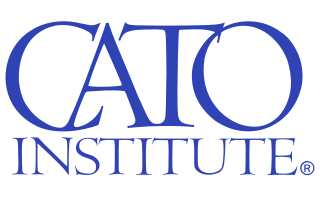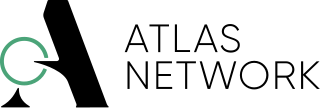Related Research Articles

The economy of Hong Kong is a highly developed free-market economy. It is characterised by low taxation, almost free port trade and a well-established international financial market. Its currency, called the Hong Kong dollar, is legally issued by three major international commercial banks, and is pegged to the US dollar. Interest rates are determined by the individual banks in Hong Kong to ensure that they are market driven. There is no officially recognised central banking system, although the Hong Kong Monetary Authority functions as a financial regulatory authority.

Milton Friedman was an American economist and statistician who received the 1976 Nobel Memorial Prize in Economic Sciences for his research on consumption analysis, monetary history and theory and the complexity of stabilization policy. With George Stigler, Friedman was among the intellectual leaders of the Chicago school of economics, a neoclassical school of economic thought associated with the work of the faculty at the University of Chicago that rejected Keynesianism in favor of monetarism until the mid-1970s, when it turned to new classical macroeconomics heavily based on the concept of rational expectations. Several students, young professors and academics who were recruited or mentored by Friedman at Chicago went on to become leading economists, including Gary Becker, Robert Fogel, and Robert Lucas Jr.

The Cato Institute is an American libertarian think tank headquartered in Washington, D.C. It was founded in 1977 by Ed Crane, Murray Rothbard, and Charles Koch, chairman of the board and chief executive officer of Koch Industries. Cato was established to focus on public advocacy, media exposure, and societal influence.

The Index of Economic Freedom is an annual index and ranking created in 1995 by The Heritage Foundation and The Wall Street Journal to measure the degree of economic freedom in the world's nations. The creators of the index assert that they take an approach inspired by Adam Smith's The Wealth of Nations, that "basic institutions that protect the liberty of individuals to pursue their own economic interests result in greater prosperity for the larger society".
Economic freedom, or economic liberty, refers to the agency of people to make economic decisions. This is a term used in economic and policy debates as well as in the philosophy of economics. One approach to economic freedom comes from the liberal tradition emphasizing free markets, free trade, and private property. Another approach to economic freedom extends the welfare economics study of individual choice, with greater economic freedom coming from a larger set of possible choices. Other conceptions of economic freedom include freedom from want and the freedom to engage in collective bargaining.

The Fraser Institute is a libertarian-conservative Canadian public policy think tank and registered charity. It is headquartered in Vancouver, with additional offices in Calgary, Toronto, and Montreal. It has links to think tanks worldwide through the Economic Freedom Network and is a member of the free-market Atlas Network.
Statistics in the European Union are collected by Eurostat.

Atlas Network, formerly known as Atlas Economic Research Foundation, is a non-governmental 501(c)(3) organization based in the United States that provides training, networking, and grants for libertarian, free-market, and conservative groups around the world.

Economic Freedom of the World is an annual survey published by the Fraser Institute, a Canadian think tank. The survey attempts to measure the degree of economic freedom in the world's nations. It has been used in peer-reviewed studies, some of which have found a range of beneficial effects of more economic freedom.

The Democracy Index published by the Economist Group is an index measuring the quality of democracy across the world. This quantitative and comparative assessment is centrally concerned with democratic rights and democratic institutions. The methodology for assessing democracy used in this democracy index is according to Economist Intelligence Unit which is part of the Economist Group, a UK-based private company, which publishes the weekly newspaper The Economist. The index is based on 60 indicators grouped into five categories, measuring pluralism, civil liberties, and political culture. In addition to a numeric score and a ranking, the index categorizes each country into one of four regime types: full democracies, flawed democracies, hybrid regimes, and authoritarian regimes. The first Democracy Index report was published in 2006. Reports were published every two years until 2010 and annually thereafter. The index includes 167 countries and territories, of which 166 are sovereign states and 164 are UN member states. Other democracy indices with similar assessments of the state of democracy include V-Dem Democracy indices or Bertelsmann Transformation Index.

Liberal democracy, western-style democracy, or substantive democracy is a form of government that combines the organization of a democracy with ideas of liberal political philosophy.
This is a list of key international rankings of Costa Rica
Canada ranks among the highest in international measurements of civil liberties, quality of life, education levels, gender equality, public services, public security and environmental sustainability. It ranks among the lowest of the most developed countries for housing affordability, healthcare services and foreign direct investment.
These are the international rankings of the Netherlands.
These are the international rankings by various organizations of the Democratic Republic of the Congo.
The following are some international rankings of Norway.
After World War II, many countries adopted policies of economic liberalization in order to stimulate their economies.
Authoritarian capitalism, or illiberal capitalism, is an economic system in which a capitalist market economy exists alongside an authoritarian government. Related to and overlapping with state capitalism, a system in which the state undertakes commercial activity, authoritarian capitalism combines private property and the functioning of market forces with repression of dissent, restrictions on freedom of speech and either a lack of elections or an electoral system with a single dominant political party.

Democracy in Africa is measured according to various definitions of democracy by a variety of indexes, such as V-Dem Democracy indices, and Democracy Index by The Economist.
References
- ↑ Ryan Craggs (January 14, 2013). "World Freedom Index 2013: Canadian Fraser Institute Ranks Countries". Huffington Post.
- 1 2 Fraser Institute (2013). "U.S.A ranked No. 1 in new comprehensive index of human freedom; New Zealand and Denmark tied for seventh" (PDF). An Index of Freedom in the World. Archived from the original (PDF) on 2013-02-03. Retrieved 2013-01-09.
- 1 2 3 Fraser Institute (2012). "Chapter 3, Towards a Worldwide Index of Human Freedom" (PDF). An Index of Freedom in the World. Archived from the original (PDF) on 2013-01-20. Retrieved 2013-01-09.
- "The HUMAN FREEDOM INDEX 2019" (PDF). cato.org. Retrieved 2022-08-26.